13 myths about the coronavirus: WHO explains why they are not true
Sign up now: Get ST's newsletters delivered to your inbox
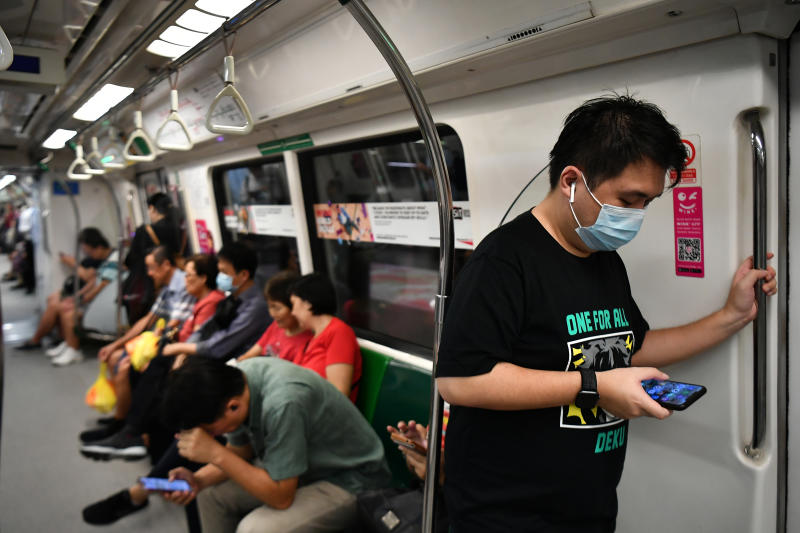
People of all ages can be infected by the new coronavirus.
ST PHOTO: LIM YAOHUI
GENEVA - As the coronavirus worms its way around the globe, catching people off guard, here is a list of myths about the Covid-19 disease which the World Health Organisation has debunked.
1. Are hand dryers effective in killing the coronavirus?
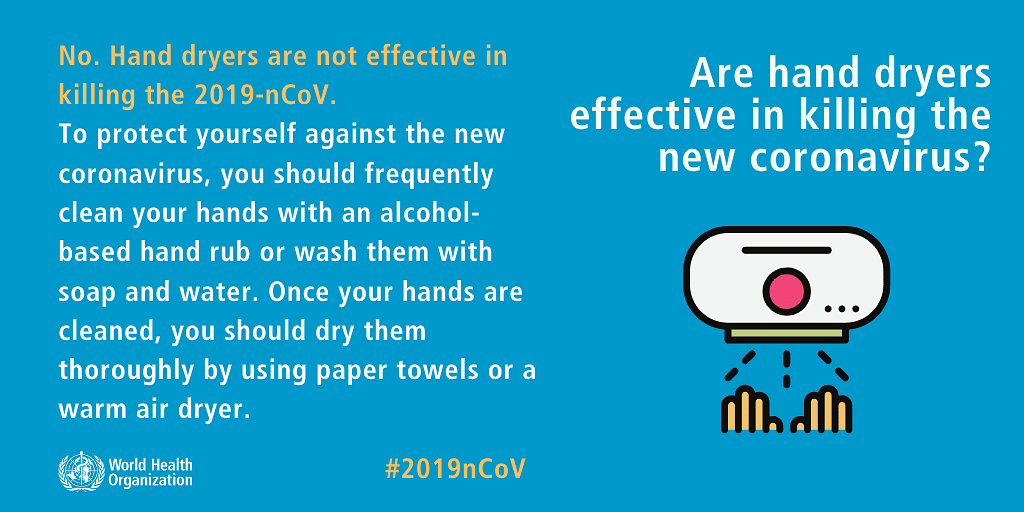
No. Hand dryers are not effective in killing the virus. To protect yourself against the virus, you should frequently clean your hands with an alcohol-based hand rub or wash them with soap and water. Once your hands are cleaned, you should dry them thoroughly using paper towels or a warm air dryer.
2. Can an ultraviolet disinfection lamp kill the coronavirus?
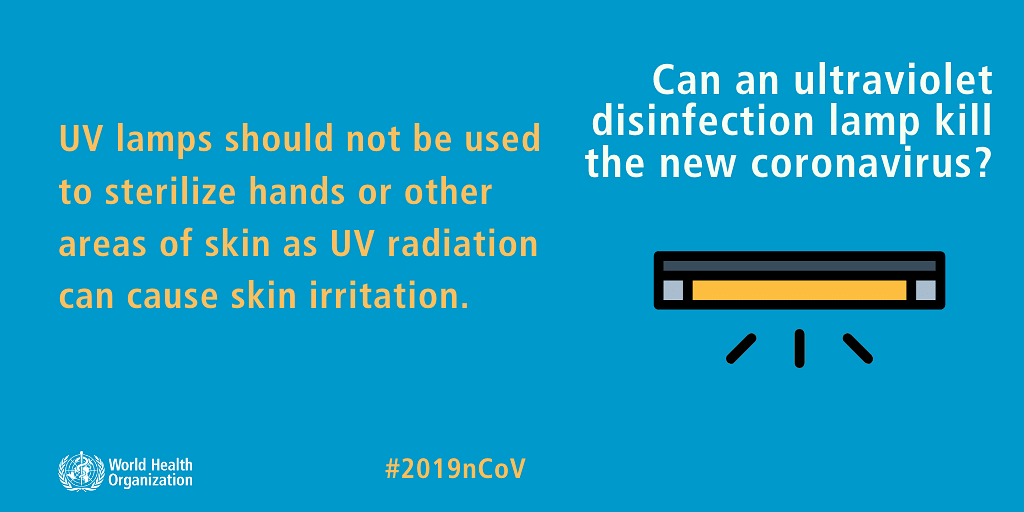
UV lamps should not be used to sterilise hands or other areas of skin, as UV radiation can cause skin irritation.
3. How effective are thermal scanners in detecting people infected with the coronavirus?
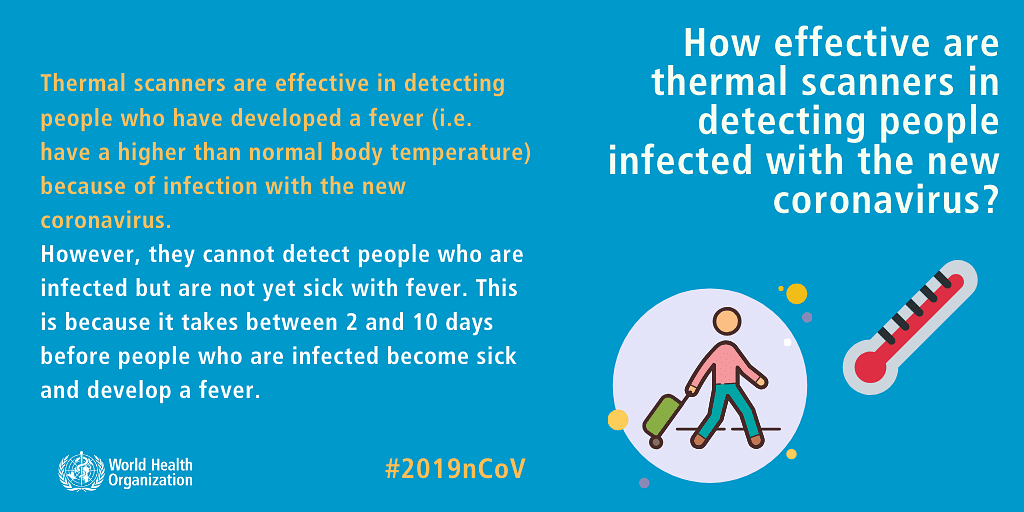
Thermal scanners are effective in detecting people who have developed a fever (that is, a higher than normal body temperature) because of infection with the coronavirus.
However, they cannot detect people who are infected but are not yet sick with fever. This is because it takes between two and 10 days before people who are infected become sick and develop a fever.
4. Can spraying alcohol or chlorine all over your body kill the coronavirus?
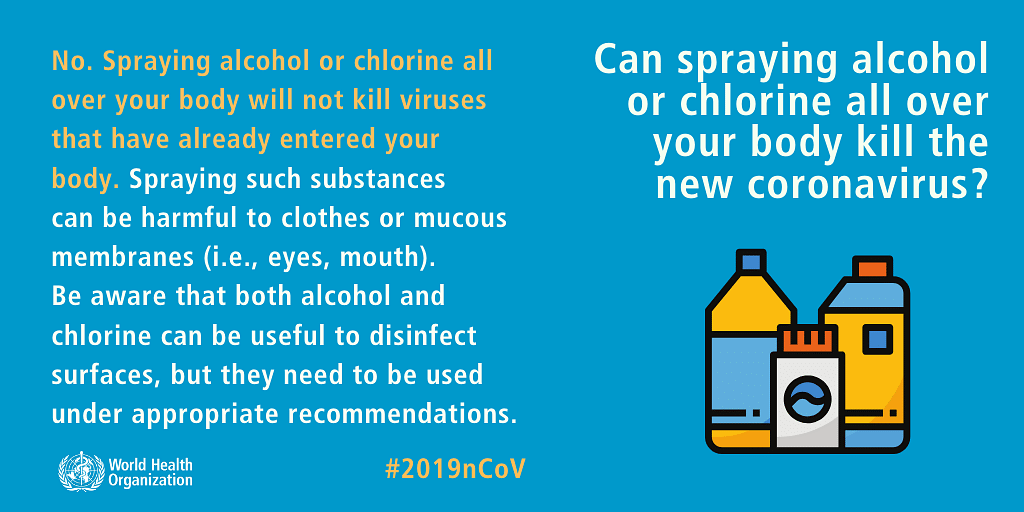
No. Spraying alcohol or chlorine all over your body will not kill viruses that have already entered your body. Spraying such substances can be harmful to clothes or mucous membranes (such as those in the eyes and mouth). Be aware that both alcohol and chlorine can be useful to disinfect surfaces, but they need to be used under appropriate recommendations.
5. Is it safe to receive a letter or a package from China?
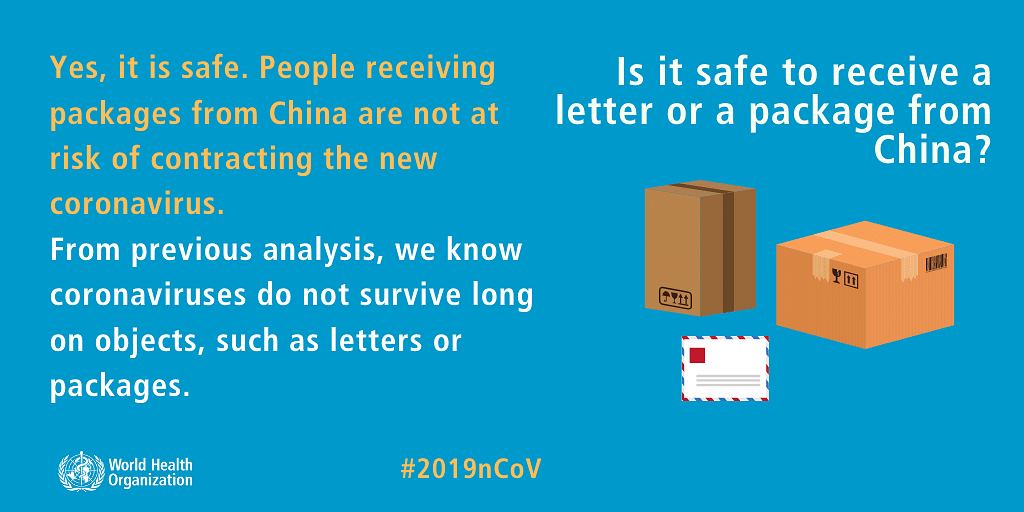
Yes, it is safe. People receiving packages from China are not at risk of contracting the coronavirus. From previous analysis, we know coronaviruses do not survive long on objects, such as letters or packages.
6. Can pets at home spread the coronavirus?
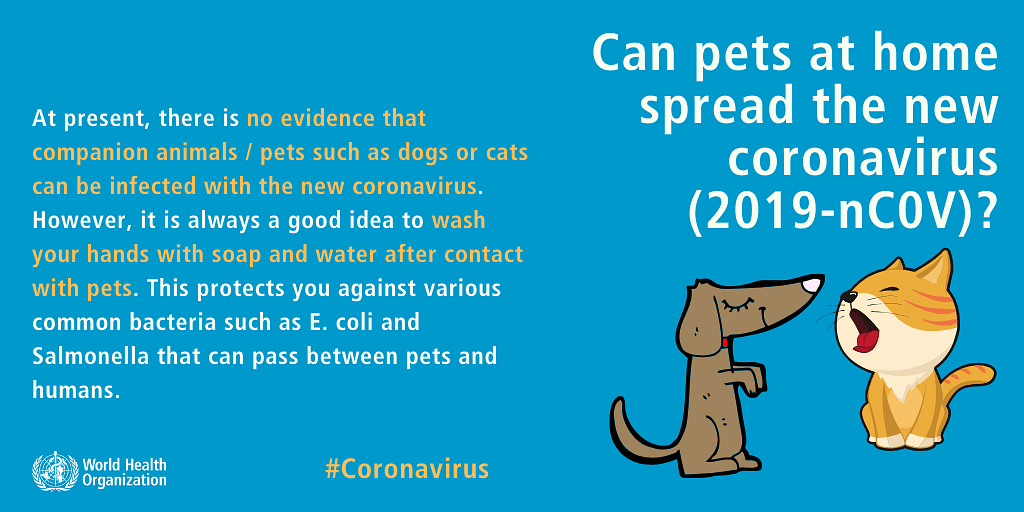
At present, there is no evidence that companion animals/pets such as dogs or cats can be infected with the coronavirus. However, it is always a good idea to wash your hands with soap and water after contact with pets. This protects you against various common bacteria such as E.coli and salmonella that can pass between pets and humans.
7. Do vaccines against pneumonia protect you against the coronavirus?
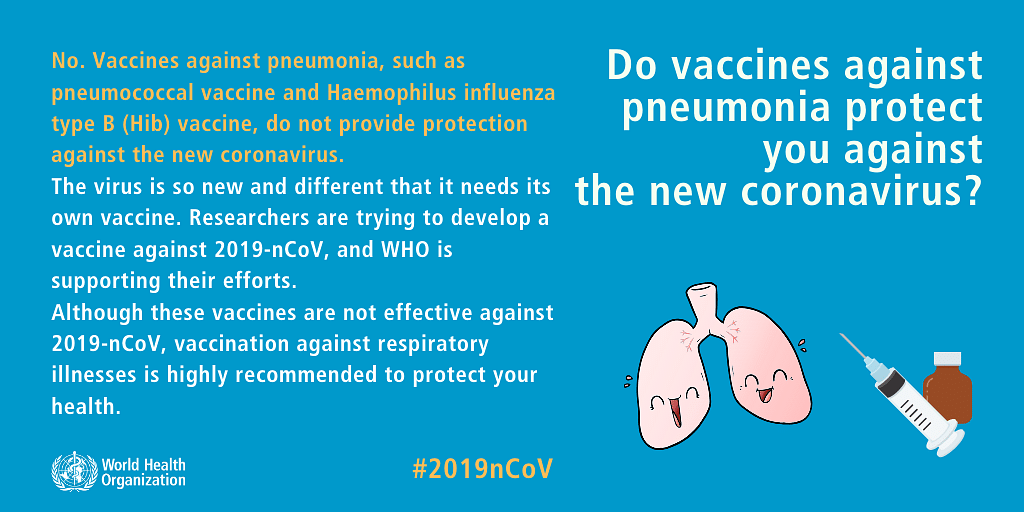
No. Vaccines against pneumonia, such as the pneumococcal vaccine and Haemophilus influenza type B (Hib) vaccine, do not provide protection against the coronavirus.
The virus is so new and different that it needs its own vaccine. Researchers are trying to develop a vaccine against it, and the WHO is supporting their efforts.
Although these vaccines are not effective against the coronavirus, vaccination against respiratory illnesses is highly recommended to protect your health.
8. Can regularly rinsing your nose with saline help prevent infection from the coronavirus?
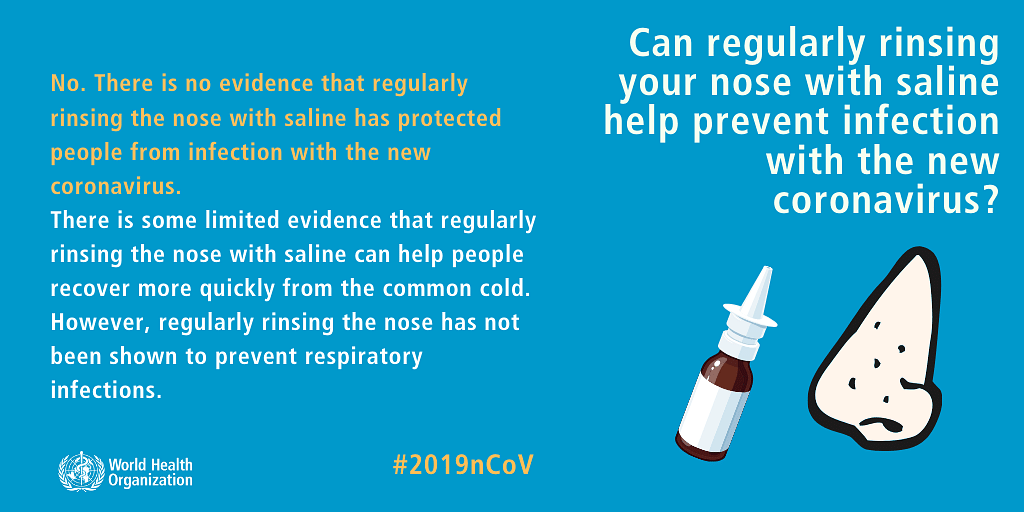
No. There is no evidence that regularly rinsing the nose with saline has protected people from infection with the new coronavirus.
There is some limited evidence that regularly rinsing the nose with saline can help people recover more quickly from the common cold. However, regular rinsing of the nose has not been shown to prevent respiratory infections.
9. Can eating garlic help prevent infection with the coronavirus?
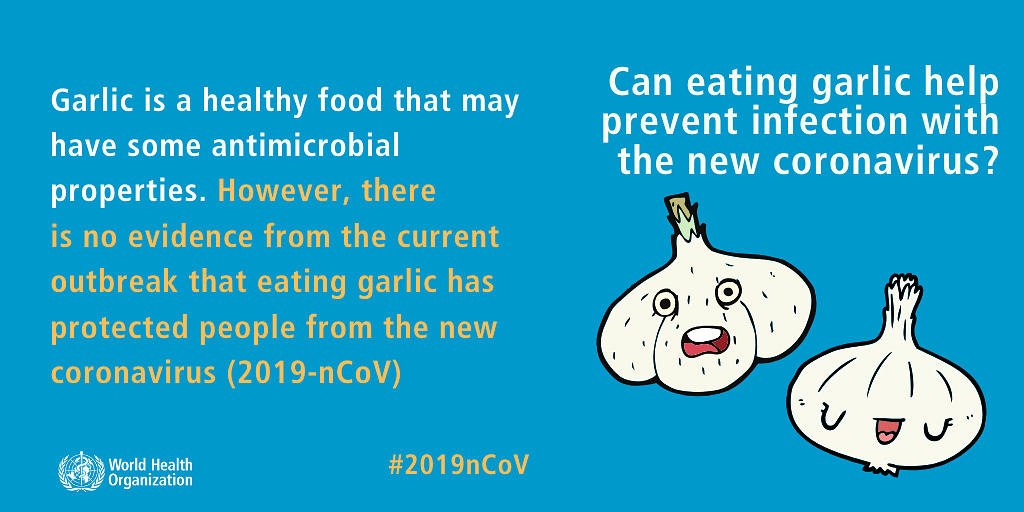
Garlic is a healthy food that may have some antimicrobial properties. However, there is no evidence from the current outbreak that eating garlic has protected people from the coronavirus.
10. Does putting on sesame oil block the coronavirus from entering the body?
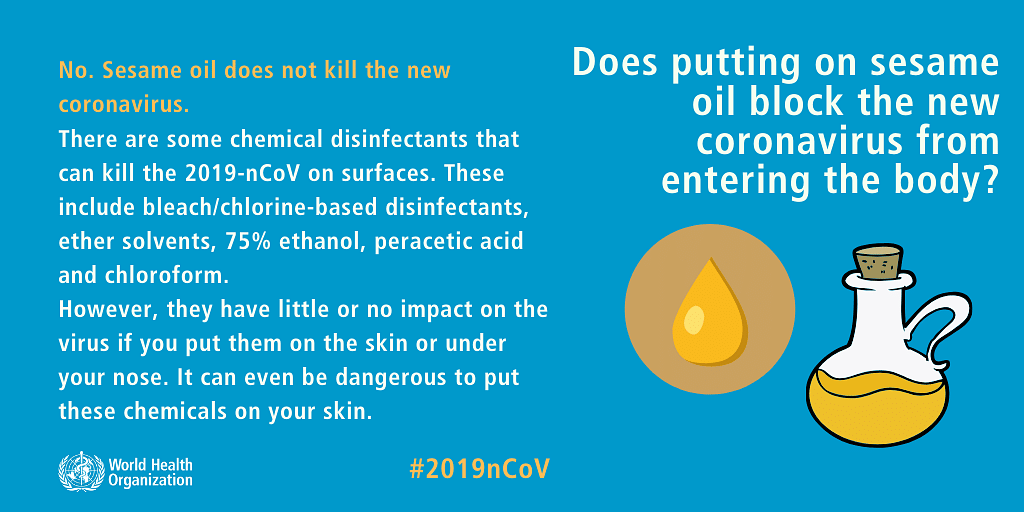
No. Sesame oil does not kill the coronavirus. There are some chemical disinfectants that can kill the virus on surfaces. These include bleach/chlorine-based disinfectants, ether solvents, 75 per cent ethanol, peracetic acid and chloroform.
However, they have little or no impact on the virus if you put them on the skin or under your nose. It can even be dangerous to put these chemicals on your skin.
11. Does the coronavirus affect older people, or are younger people also susceptible?
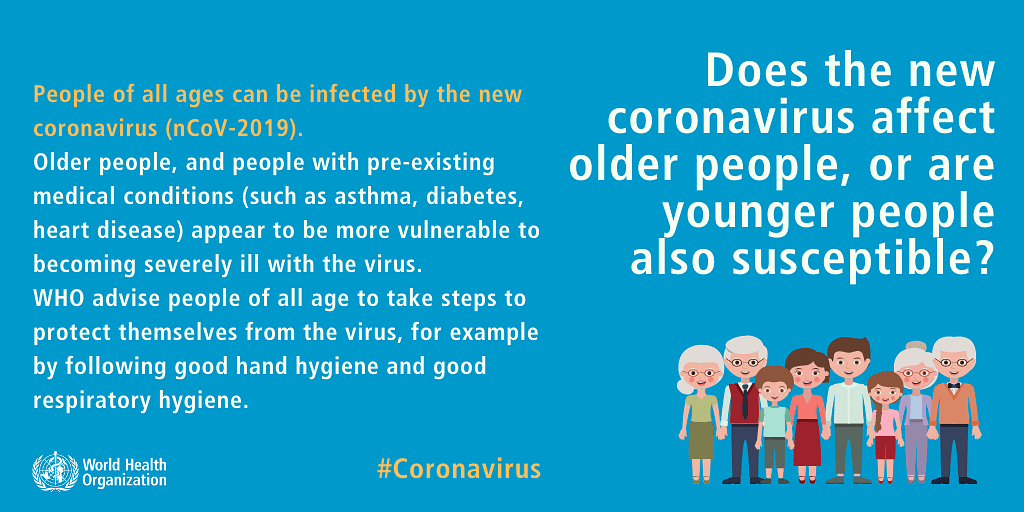
People of all ages can be infected by the coronavirus. Older people and people with pre-existing medical conditions (such as asthma, diabetes or heart disease) appear to be more vulnerable to becoming severely ill with the virus.
The WHO advises people of all ages to take steps to protect themselves from the virus, for example by following good hand hygiene and good respiratory hygiene.
12. Are antibiotics effective in preventing and treating the coronavirus?
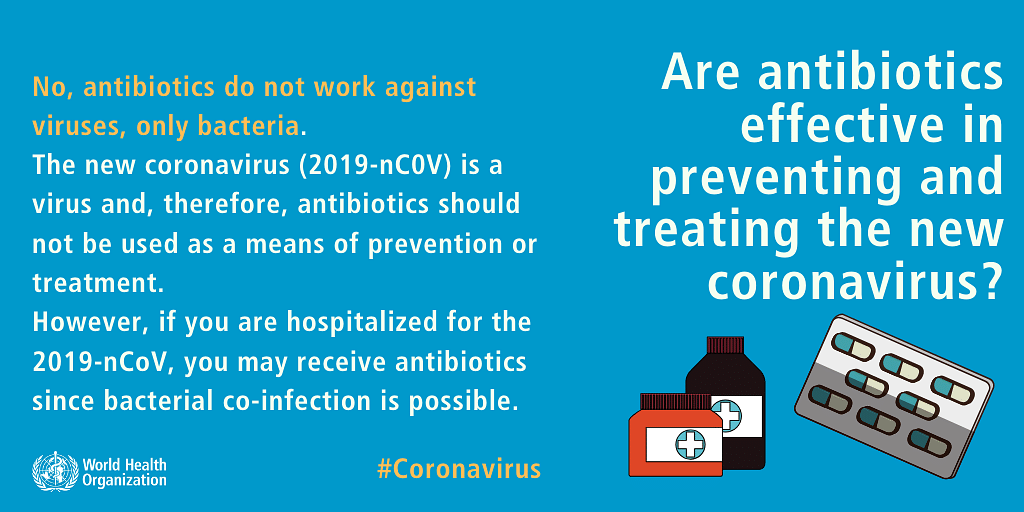
No, antibiotics do not work against viruses, only bacteria.
The coronavirus is a virus and, therefore, antibiotics should not be used as a means of prevention or treatment.
However, if you are hospitalised for the virus, you may receive antibiotics because bacterial co-infection is possible.
13. Are there any specific medicines to prevent or treat the coronavirus?

To date, there is no specific medicine recommended to prevent or treat the new coronavirus.
However, those infected with the virus should receive appropriate care to relieve and treat symptoms, and those with severe illness should receive optimised supportive care. Some specific treatments are under investigation, and will be tested through clinical trials. The WHO is helping to accelerate research and development efforts with a range or partners.


